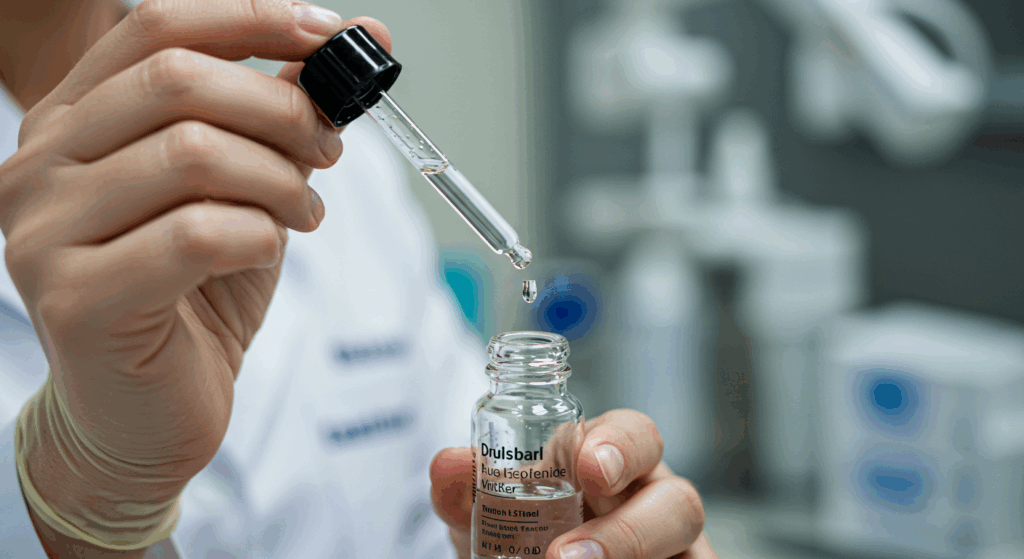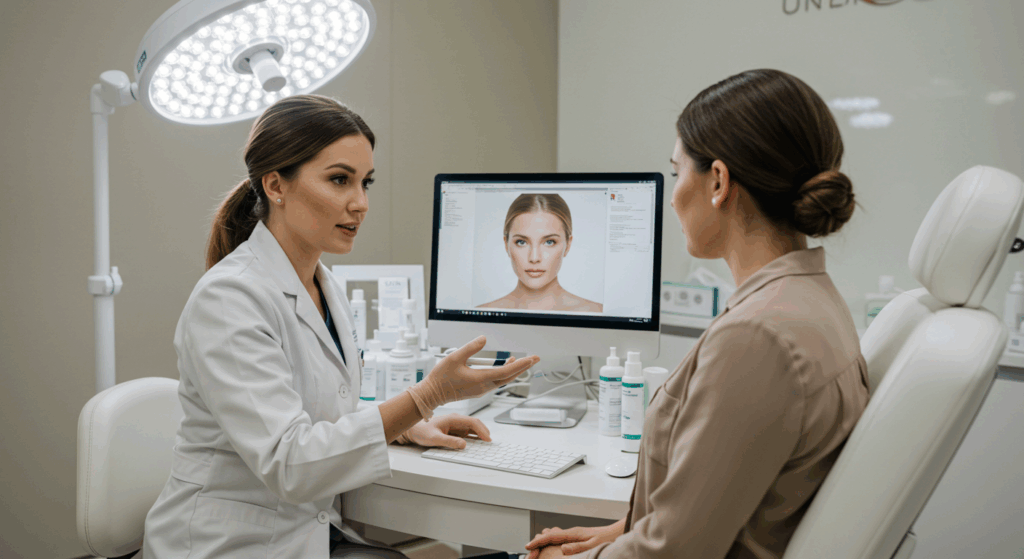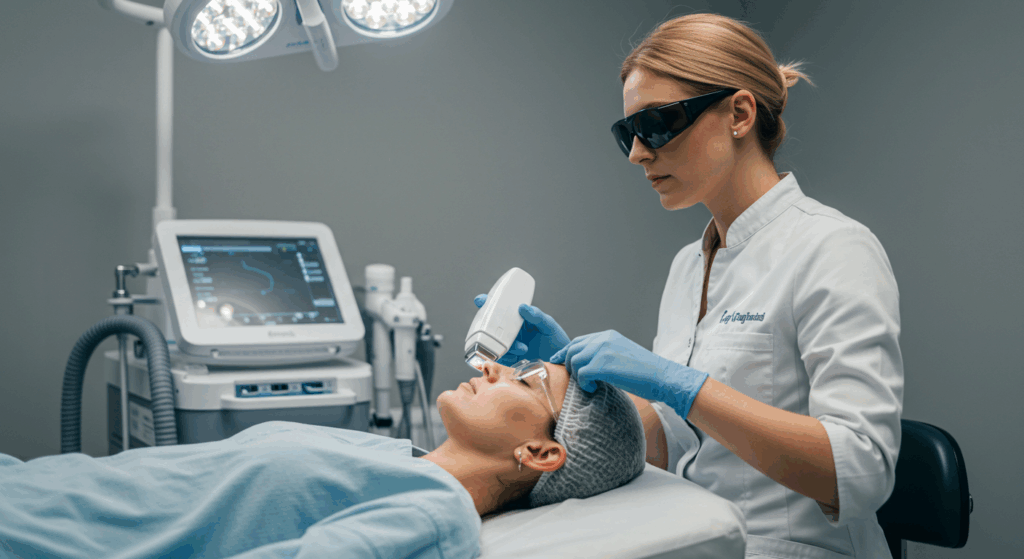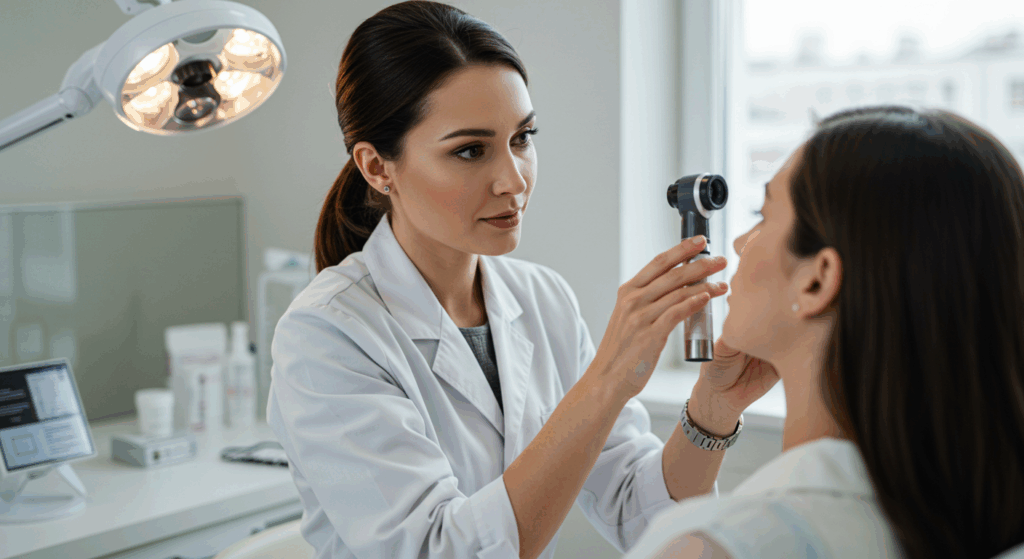Are you tired of generic skincare routines that promise miracles but deliver minimal results? In the era of personalized medicine, personalized skin treatment is revolutionizing how we approach dermatological care. At Dr. Ebru Okyay’s clinic in Antalya, we believe that every skin type is unique, and so should be every treatment protocol. This comprehensive guide explores customized skin treatment protocols, helping you understand how tailored approaches can transform your skin health.
From genetic factors to environmental influences, your skin tells a story that demands a bespoke response. In 2025, advancements in dermatology allow us to create individualized plans that address specific concerns like acne, eczema, or aging. Whether you’re dealing with chronic conditions or seeking preventive care, discover how personalized strategies can lead to lasting, visible improvements.

Understanding Personalized Medicine in Dermatology
Personalized medicine, also known as precision medicine, tailors medical treatment to the individual characteristics of each patient. In dermatology, this means moving beyond one-size-fits-all solutions to protocols designed based on your genetic makeup, lifestyle, and skin’s unique microbiome.
The skin is our body’s largest organ, constantly interacting with the environment. Factors like UV exposure, pollution, diet, and stress affect everyone differently. Traditional treatments often overlook these nuances, leading to suboptimal outcomes. Personalized skin treatment, however, uses data-driven insights to optimize results.
The Evolution of Customized Skin Care
Over the past decade, genomic testing and AI-powered diagnostics have paved the way for customized approaches. In 2025, we’re seeing integration of wearable tech that monitors skin metrics in real-time, allowing for dynamic adjustments to treatment plans.
For patients with chronic skin conditions, this evolution is game-changing. What was once a trial-and-error process is now precise and proactive. Learn more about managing chronic skin conditions in our detailed guide.
Benefits of Personalized Skin Treatment Protocols
- Improved Efficacy: Treatments target root causes, reducing recurrence rates.
- Minimized Side Effects: Customized dosing and ingredients avoid unnecessary irritants.
- Enhanced Patient Satisfaction: Tailored plans align with lifestyle and preferences.
- Cost-Effectiveness Long-Term: Fewer visits and better outcomes save time and money.
At our Antalya clinic, we’ve witnessed firsthand how these benefits translate to real-life transformations for patients from around the world.
| Traditional Approach | Personalized Approach |
|---|---|
| Generic creams for all | Formulated based on skin analysis |
| Trial-and-error adjustments | Data-informed modifications |
| Standard follow-ups | Real-time monitoring via apps |

Assessing Your Skin: The Foundation of Customization
Before crafting a customized skin treatment protocol, a thorough assessment is essential. This involves a multi-faceted evaluation to uncover the underlying factors influencing your skin health.
Comprehensive Skin Analysis Techniques
We start with a detailed consultation, reviewing your medical history, daily routines, and environmental exposures. Advanced tools like VISIA skin analysis provide insights into pigmentation, wrinkles, and pore size.
Genetic testing, now more accessible in 2025, identifies predispositions to conditions like psoriasis or melanoma. Microbiome sampling reveals imbalances that could contribute to issues like acne.
- Dermoscopy: For examining moles and lesions up close.
- Patch Testing: To detect allergies affecting the skin.
- Hormonal Profiling: Especially for acne or rosacea linked to imbalances.
For those struggling with acne, our in-office acne treatments begin with such assessments to ensure precision.
| Skin Assessment Method | Purpose | Benefits |
|---|---|---|
| VISIA Imaging | UV damage and texture analysis | Non-invasive, detailed reports |
| Genetic Sequencing | Predisposition to disorders | Proactive prevention strategies |
| Microbiome Testing | Gut-skin axis evaluation | Targeted probiotic interventions |
Identifying Key Skin Types and Concerns
Skin types range from oily to dry, combination to sensitive. But in personalized care, we go deeper—considering subtypes like acne-prone oily or aging dry skin. Common concerns include hyperpigmentation, loss of elasticity, and inflammatory conditions.
Environmental factors in Antalya, such as sun exposure, play a significant role. Our protocols account for local climate to enhance efficacy.

Developing Customized Treatment Protocols
Once assessed, we design protocols that integrate topical, systemic, and lifestyle interventions. The goal is holistic improvement tailored to your needs.
Topical and Systemic Therapies
Topicals like retinoids or peptides are selected based on your skin’s tolerance. For systemic issues, such as severe eczema, we may recommend biologics or oral medications, always customized.
In cases of psoriasis, explore our specialized psoriasis treatment options that emphasize personalization.
| Concern | Customized Topical | Systemic Option |
|---|---|---|
| Acne | Benzoyl peroxide variants | Isotretinoin if needed |
| Eczema | Hypoallergenic moisturizers | Immunosuppressants |
| Anti-Aging | Personalized serums | Hormone therapy |
Incorporating Lifestyle and Preventive Measures
Treatment extends beyond the clinic. We provide dietary recommendations, stress management tips, and sun protection plans suited to your profile.
- Diet: Anti-inflammatory foods for inflammatory skins.
- Exercise: Routines that support skin circulation without irritation.
- Sleep Optimization: Protocols to enhance skin repair cycles.
Advanced Techniques and Technologies in 2025
2025 brings cutting-edge innovations to personalized dermatology, from AI diagnostics to regenerative therapies.
AI and Machine Learning in Skin Care
AI analyzes images to predict treatment responses, allowing for hyper-personalized plans. Apps track progress and suggest adjustments.
Regenerative and Minimally Invasive Procedures
Techniques like PRP therapy and exosome treatments are customized based on your regenerative potential. For aesthetic enhancements, see our facial aesthetic treatments.
| Technology | Application | Personalization Aspect |
|---|---|---|
| PRP Therapy | Rejuvenation | Blood analysis for growth factors |
| Laser Customization | Pigmentation correction | Skin tone-specific wavelengths |
| 3D Skin Printing | Scar repair | Patient-derived cells |
These advancements ensure safer, more effective outcomes for diverse skin types.
Conclusion
Key Takeaways
- Personalized skin treatment uses assessments like genetic testing for tailored protocols.
- Customized approaches minimize side effects and maximize results for conditions like acne and eczema.
- In 2025, AI and regenerative tech enhance precision in dermatology.
- Holistic integration of lifestyle factors ensures long-term skin health.
Next Steps
Ready to personalize your skin care? Schedule a consultation at Dr. Ebru Okyay’s clinic in Antalya to start your customized journey.
- Book an initial skin assessment.
- Discuss your concerns and goals.
- Receive a bespoke treatment plan.
Frequently Asked Questions (FAQs)
What is personalized skin treatment?
Personalized skin treatment involves creating treatment protocols based on individual skin analysis, genetics, and lifestyle for optimal results.
How long does it take to see results from customized protocols?
Results vary, but many patients notice improvements within 4-6 weeks, with full benefits in 3-6 months.
Is genetic testing necessary for personalized dermatology?
It’s highly recommended for precision but not always mandatory; assessments can guide without it.
Can personalized treatments help with acne?
Yes, by targeting specific causes like hormones or microbiome, customized plans are very effective.
What role does diet play in customized skin protocols?
Diet is integral; we recommend anti-inflammatory foods tailored to your skin needs.
Are there risks with advanced 2025 technologies?
When performed by experts, risks are minimal, and personalization reduces them further.
How often should I follow up for adjustments?
Every 4-8 weeks initially, then as needed based on progress monitoring.
Is this approach suitable for all ages?
Absolutely, from teens with acne to seniors with aging concerns, personalization benefits all.
Experience the future of dermatology with Dr. Ebru Okyay in Antalya. Your path to radiant, healthy skin starts with a personalized plan.
